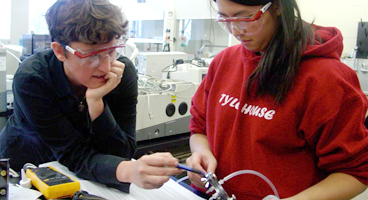New Engineers' First Three Months: A Study of the Transition from Capstone Design Courses to Workplaces
Archived as published.
Abstract
In preparing engineering students for the workplace, capstone classes provide unique opportunities for students to develop their professional identities and learn critical skills such as engineering design, teamwork, and self-directed learning (Lutz & Paretti). While existing research explores what and how students learn within these courses, we know much less about how capstone courses affect students' transitions into the workplace. To address this gap, we are following 62 new graduates from four institutions during the participants' first 12 weeks of work. Participants were drawn from three mechanical engineering programs and one engineering science program. Women were intentionally oversampled in the study, with 29 participants (47%) identifying as female. Weekly surveys were used to collect quantitative data on what types of workplace activities participants engaged in (e.g., team meetings, project budgeting, CAD modeling, engineering calculations) and qualitative data on what challenges they experience in their early work experience. In this paper, we present a descriptive analysis of the data to identify patterns across participants. Preliminary analysis of the quantitative data suggests that the most common activities for our participants were team meetings and project planning (mentioned by >70% of participants) compared to formal presentations and project budgeting (mentioned by <30% of participants). Preliminary analysis of the qualitative data suggests that participants' most challenging experiences clustered into two dominant groups: 1) self-directed learning, and 2) teamwork and communication. The results are intended to inform both capstone faculty and industry to identify areas of strength and improvement. Our recommendations target current practices in capstone education including course design and structure as well as industry onboarding practices.


